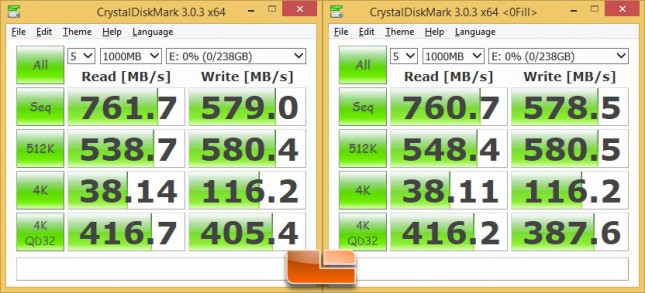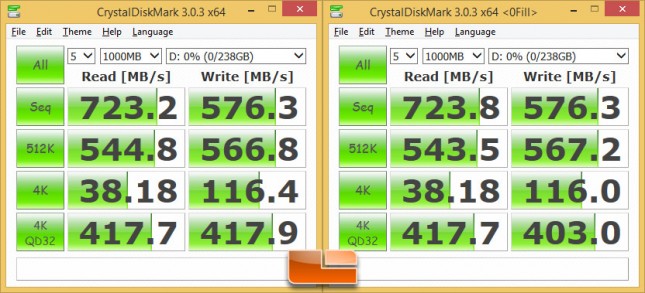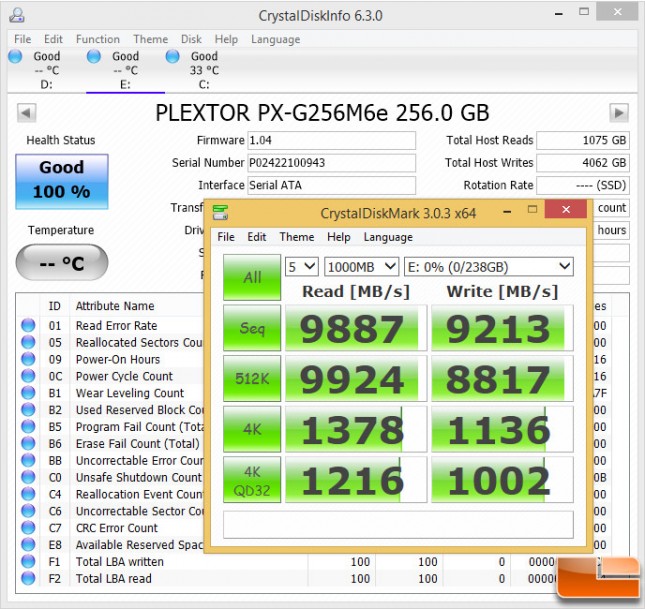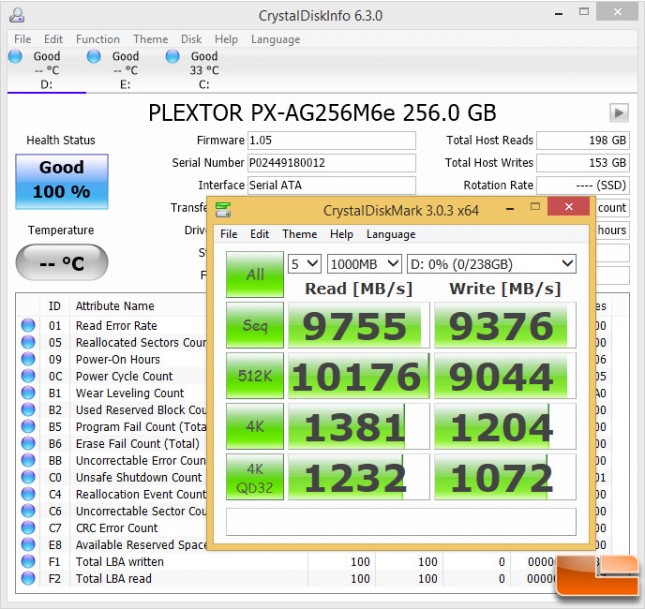Plextor M6e Black Edition M.2 PCIe SSD Review
CrystalDiskMark and PlexTurbo 2.0
CrystalDiskMark 3.0.3 x64 – Intel Z97 Platform
CrystalDiskMark is a small benchmark utility for drives and enables rapid measurement of sequential and random read/write speeds. Note that CDM only supports Native Command Queuing (NCQ) with a queue depth of 32 (as noted) for the last listed benchmark score. This can skew some results in favor of controllers that also do not support NCQ.
Plextor M6e 256GB:
Plextor M6e Black Edition 256GB:
Benchmark Results: The Plextor M6e 256GB M.2 PCIe SSD topped out at 762MB/s read and 579MB/s on the sequential test when we ran the drive on the CrystalDiskMark storage test. The new Plextor M6e Black Edition PCIe SSD was slightly slower at 723MB/s read and 576MB/s write. The 4K scores were 38MB/s read and 116MB/s write on both drives.
Plextor M6e 256GB:
Plextor M6e Black Edition 256GB:
Benchmark Results: We were shocked to find out that both the M6e and M6e Black Edition could run the new PlexTurbo 2.0 utility just fine. We originally thought that this would be a feature unique to the M6e Black Edition, but we tried it out on our original M6e drive with firmware v1.03 and v1.04 and it worked perfectly. With PlexTurbo 2.0 intelligent SSD software cache technology enabled we saw a major performance boost in CystalDiskMark as you can see above. Using DRAM caching has been found to be a lot faster than using NAND Flash in an SSD, but the performance increase could actually be a decrease in some workload scenarios. DRAM Cache software has been around for a number of years, but many people that have tried it over time don’t really see and major performance benefits in real world applications as they are already running on a snappy SSD. A few milliseconds here and there are tough to sense when the access times are already as low as they are on modern SSDs.




